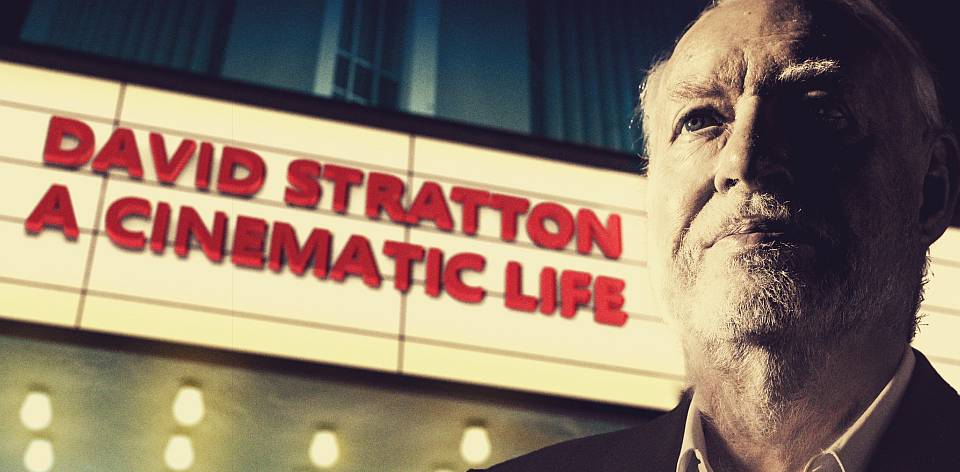David Stratton: A Cinematic Life is a simple idea superbly executed: tell the history of Australian cinema through eyes of a man who is arguably its most famous critic. Sally Aitken’s film is a fascinating portrait of one man’s passion for film, a love letter to his adopted country (Stratton was born into a conservative middle-class family in Trowbridge, Wiltshire).and how a national cinema gained maturity and global acclaim.
As a young filmgoer in England, Stratton became fascinated by Australia after seeing The Outlanders with its charismatic, rough and tumble star, Chips Rafferty. Stratton’s cinephilia and wanderlust brought him to Sydney and a dream job running the Sydney Film Festival until 1978, when he becomes a regular correspondent for Variety and hosts a weekly Siskel and Ebert type review programme on Australian TV.
In addition to telling the story of Stratton’s life, the film shows the links between the competing genres that battled for attention from audiences – exploitation fare like The Adventures of Barry Mackenzie and Stork and the art house classics like Picnic at Hanging Rock, Breaker Morant and My Brilliant Career. This film does not shy away from some of Stratton’s critical blindspots such as his censorious dismissal of Romper Stomper, which he felt made its neo-nazi protagonists too sympathetic. The film’s director, Geoffrey Wright, responded by throwing a drink in Stratton’s face.
Overall, Stratton is one of those rare critics loved by fimmakers – everyone from Russell Crowe and Nicole Kidman to George Miller and Jane Campion has nice things to say about the “Pommie” cineaste who made Down Under his home. Aitken’s doc has a heart as well as mind which will have viewers searching out the many Australian classics discussed for future viewing.
Director: Sally Aitken
Stars: Eric Bana, Bryan Brown, Al Clark
